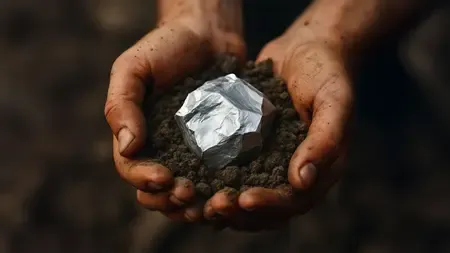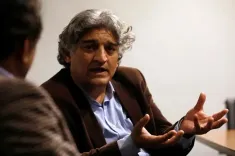How is India Strengthening Supply Chain Resilience with Critical Minerals?

Synopsis
Key Takeaways
- Rs 1,500 crore incentive scheme launched by the government.
- Aim to build 270 kilo tonnes annual recycling capacity.
- Projected creation of 70,000 jobs.
- Focus on reducing import dependency.
- Support for 1,000 patents by FY 2030-31.
New Delhi, Sep 6 (NationPress) The Union Cabinet has sanctioned a Rs 1,500 crore incentive program under the National Critical Mineral Mission (NCMM) to enhance India’s recycling capabilities for critical minerals derived from secondary sources like e-waste, lithium-ion battery remnants, and decommissioned vehicle components.
This initiative aims to cultivate both new and established recyclers, aspiring to establish an annual recycling capacity of 270 kilo tonnes, generate 40 kilo tonnes of critical minerals, attract around Rs 8,000 crore in investments, and create nearly 70,000 jobs. This strategic move is designed to bolster supply chain resilience and diminish import reliance, as stated by the government.
Critical minerals are quickly becoming the essential resource of the 21st century—scarce, vital, and highly contested. They serve as fundamental components of a modern economy.
India has established significant climate objectives, including reducing the emissions intensity of its GDP by 45 percent by 2030 (compared to 2005 levels), sourcing half of its power capacity from non-fossil fuels by the same year, and achieving net-zero emissions by 2070.
At the heart of these ambitions lies the National Critical Mineral Mission (NCMM), which aims to secure sustainable supplies of lithium, cobalt, nickel, and rare earth elements. This mission not only targets clean energy and electric mobility but also seeks to attract investments, stimulate innovation, and position India at the forefront of global supply chains for future industries.
As the global community transitions to clean energy and cutting-edge technologies, dominance over critical minerals has emerged as a new battleground in geopolitics.
In January 2025, India initiated the National Critical Mineral Mission (NCMM), which will operate for seven years, from 2024-25 to 2030-31, with a proposed budget of Rs 16,300 crore and anticipated investments of Rs 18,000 crore from Public Sector Undertakings (PSUs) and other stakeholders.
This initiative is more than just a mining program; it serves as a strategic framework to ensure energy security, promote industrial growth, and establish technological independence. From the lithium powering electric vehicles to the rare earths essential for defense systems, the National Critical Minerals Mission encompasses a broad range of objectives.
A primary goal of the National Critical Minerals Mission (NCMM) is to stimulate innovation by facilitating and overseeing the filing of 1,000 patents across the critical minerals value chain by FY 2030–31.
The objective is clear: expedite the development and commercialization of indigenous technologies crucial for India’s energy transition and strategic sectors. This progress is already becoming evident. Concurrently, the guidelines for establishing a dedicated Centre of Excellence (CoE) under the Mission were approved on April 6, 2025, marking a significant advancement in India’s critical minerals agenda.









